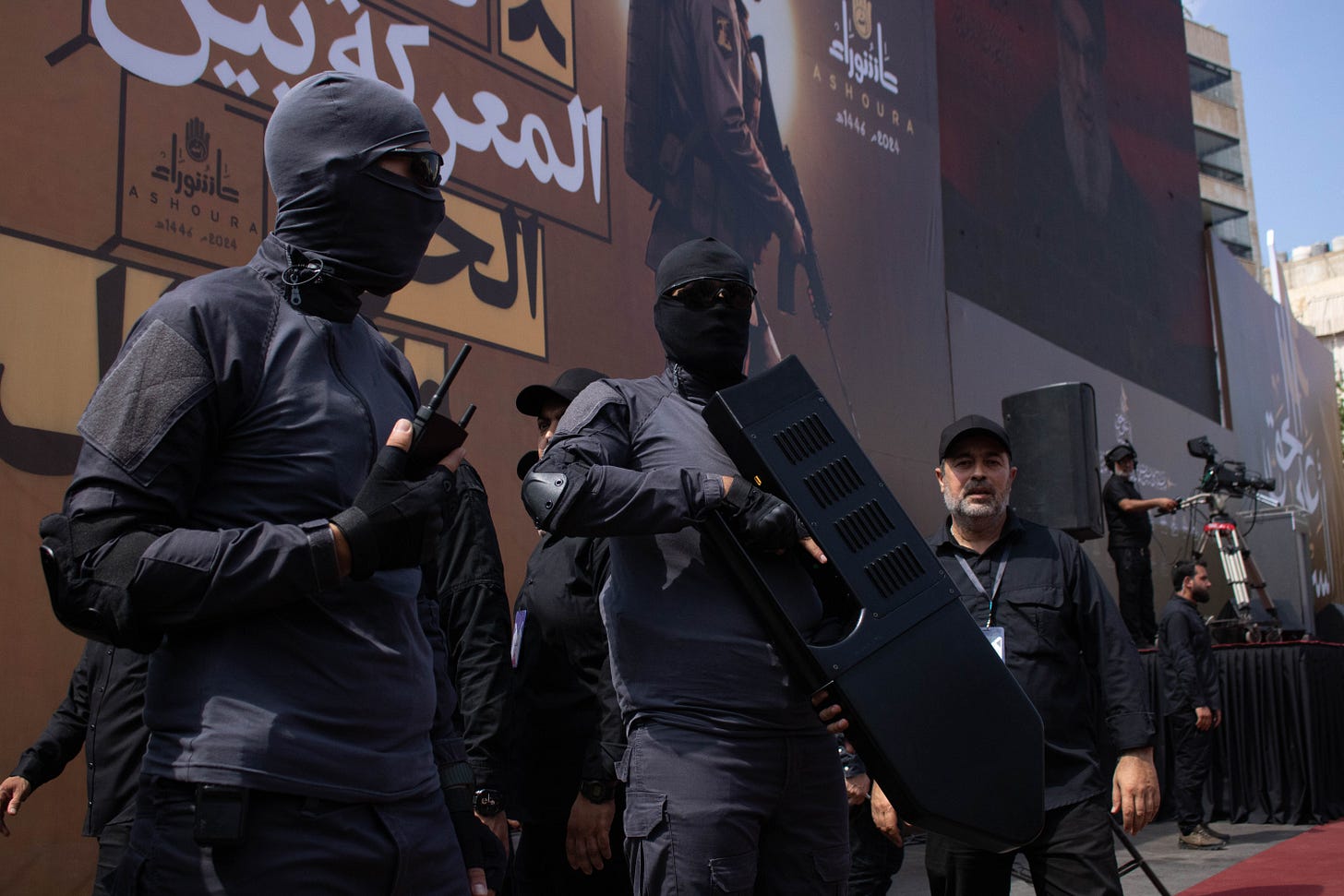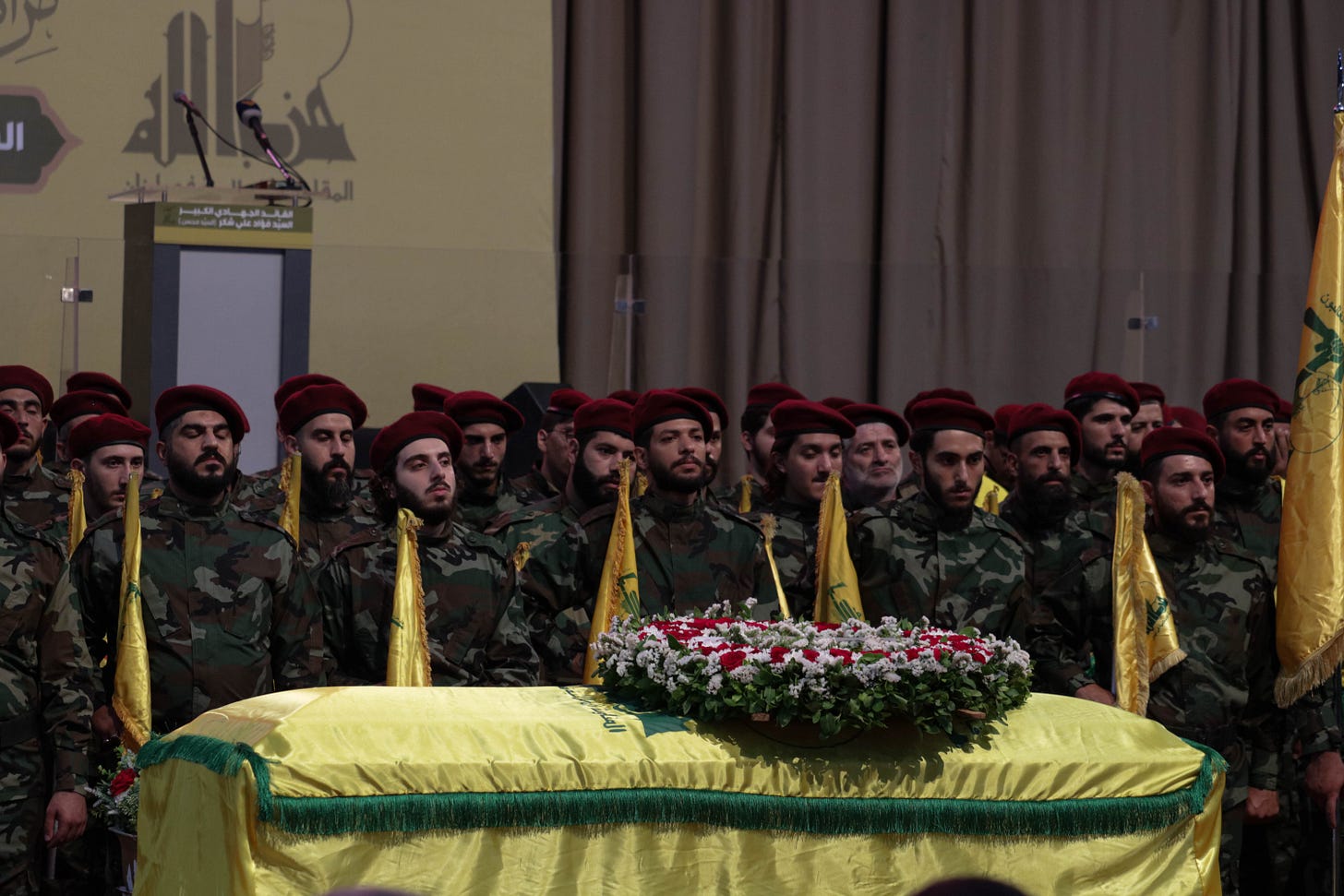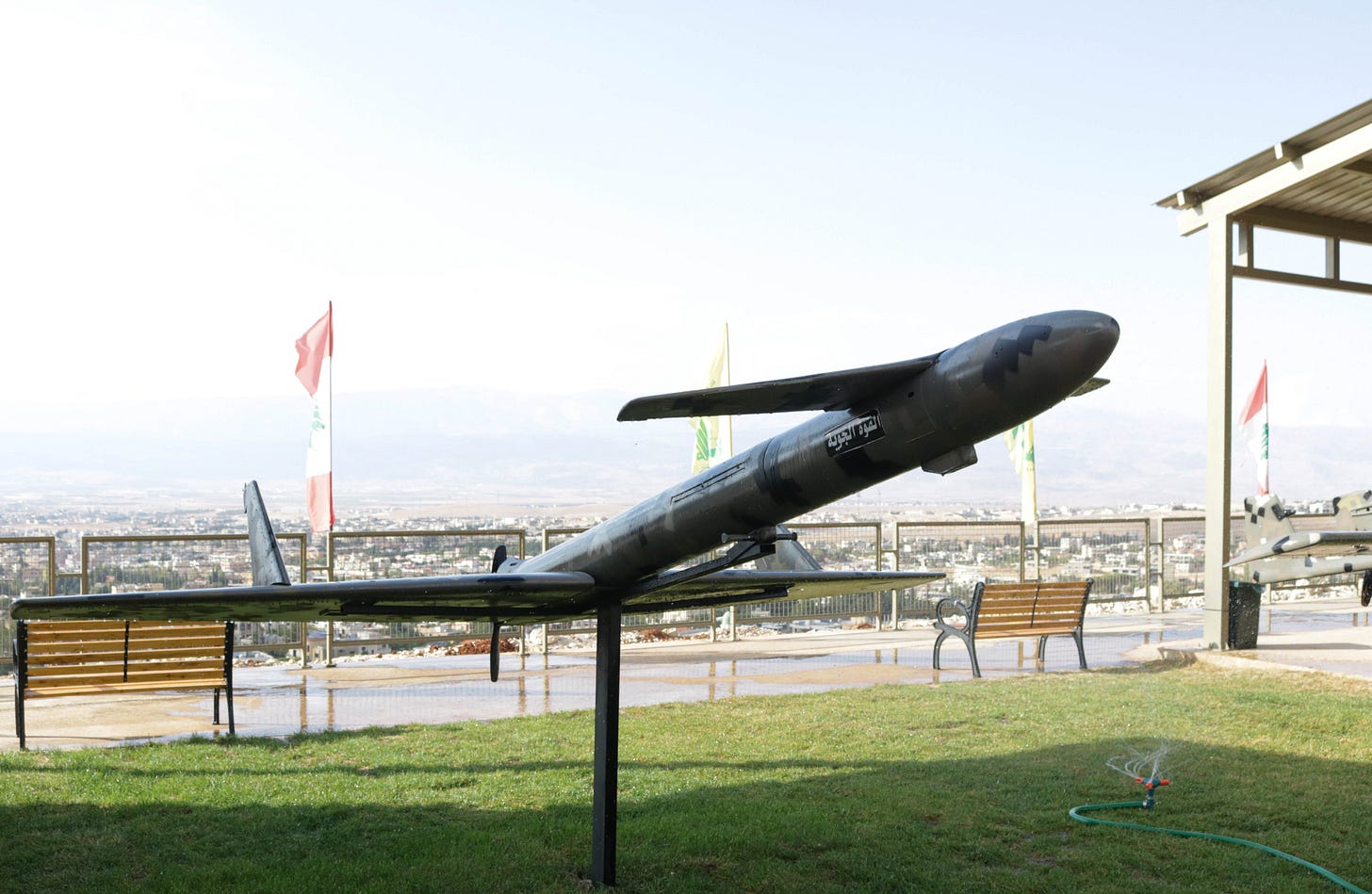The debate over Hezbollah's weapons
After a punishing war with Israel, the debate over whether Hezbollah should remain armed has once again come to the forefront in Lebanon, though the party is unlikely to give them up.

When Hezbollah opened up a support front for Gaza on Oct. 8, 2023, the day after Hamas’s unprecedented “al-Aqsa Flood Operation,” there was criticism of the party’s actions in Lebanon’s public discourse, but it was mostly kept at a minimum at the time.
Then, in September 2024, after nearly a year of mostly contained back and forth conflict, a full-scale war finally broke out between Hezbollah and Israel in which Lebanon’s southern neighbor unleashed a devastating air campaign against Lebanon, leveling countless buildings along with a ground invasion that saw entire border villages that once stood proudly turned into rubble.
And, following the election of Joseph Aoun as president, ending an over two-year vacuum, and the formation of the Nawaf Salam government, discussions over Hezbollah’s disarmament have not only returned to the Lebanese discourse, but have become a serious discussion in Lebanese politics.
For years, political parties and factions opposed to Hezbollah, most notably the Lebanese Forces and Kataeb, have called for the party’s disarmament but those statements were often viewed as little more than political posturing and being completely unrealistic. There was no way that Hezbollah would willingly disarm and forcing them to would likely entail a new civil war against a group better equipped and, arguably, better trained than the Lebanese army or any other militia that might spring up.
However, since taking the helm of the government, Salam has sought to ensure that the state maintains a monopoly on arms and while Hezbollah initially entertained the idea by saying that they would consider it if discussions were part of the formation of a “national defense strategy,” the party’s rhetoric has since shifted to more oppositional.
The more open and consilatory talk from Hezbollah officially came to an end during a April 18 speech by the party’s secretary-general, Naim Kassem.
“We will not allow anyone to disarm Hezbollah or disarm the resistance, because Hezbollah and the resistance are one. The idea of disarmament must be removed from your heads,” Kassem stated defiantly.
“These weapons are a pillar of the resistance. These weapons are what gave life and freedom to our people. These weapons are what liberated our homeland and protected its sovereignty. These weapons are carried by the blood of martyrs, wounded, and prisoners, who fought so that the homeland would be honorable and dignified. We will confront those who attack the resistance, and those who work for disarmament –according to the expressions they use – just as we confronted Israel, whether it is Israel, America, or any of their lackeys.”
Despite this, those calling for Hezbollah’s disarmament have not been deterred.
Just days after Kassem’s speech, Salam issued a statement in which he said that “The Lebanese state is the only master of the decision of war and peace, and the only party authorized to possess weapons.”
So, where are things likely to go from here?
A non-state militia
When Hezbollah liberated south Lebanon in May 2000 after 18 years of Israeli occupation, the country was ecstatic. The Islamic Resistance had done what no one thought was possible: it forced Israel to retreat and give up occupied land under fire.
At the time, no one questioned Hezbollah maintaining its arms. Even eight years prior when the various Lebanese militias were negotiating an end to the civil war, Hezbollah was excluded from the list of groups that would need to turn in its weapons since the party was classified as a “resistance” – thanks to Syria – rather than a militia; a technicality that has allowed the group to maintain its arsenal in the decades since.
The Lebanese public’s stances on Hezbollah’s arms started to shift, though, following the July 2006 war when an operation by Hezbollah to kidnap Israeli soldiers stationed along the border to use in a hostage deal that would secure the release of Lebanese being held in Israeli prisons led to a full-scale conflict between the party and its southern neighbor.
Hezbollah’s then-leader, Hassan Nasrallah, even acknowledged after the war that it was a miscalculation on their end and that if they believed the operation would have led to war, then they would never have carried it out in the first place. But the damage was done.
No longer was Hezbollah viewed as the liberators of the south, but rather, it was now also the group that could decide when and if Lebanon entered a war – a role that is supposed to be reserved for the state.
Hezbollah’s reputation was further tarnished in 2008 when its forces took over parts of Beirut after the Sinoura government said that it was going to remove Hezbollah’s private telecommunications network that was installed throughout parts of the country.
After these two events, a significant portion of the country opposed Hezbollah maintaining its substantial arsenal. But there was little the state could do in terms of forcibly disarming the party. Negotiations were also never going to happen as long as Hezbollah held significant portions of the government and could collapse it should the government do anything it did not like.
It remained like this for 15 years, with opponents of Hezbollah denouncing its weapons and calling for it to be disarmed. Then came Hamas’ Oct. 7, 2023 attack on Israel.
The following day, Hezbollah opened a “support front” that was meant to be limited in scale but, as the months dragged on, the fighting escalated until it erupted into a full-scale war that devastated the south, Bekaa and parts of Beirut’s southern suburbs.
While the war technically ended following the Nov. 27, 2024 ceasefire, Israel continues to carry out attacks on Lebanon almost daily and also occupies five points along the Lebanese border that it claims are “strategic” to Israel’s security.
This war proved to be another event that reminded many that Hezbollah was not only armed but was also able to bring the country to war whenever it pleased. For those opposed to Hezbollah, this war was the last straw and the party needed to disarm.
Since no one wants an armed conflict between the state and Hezbollah, this has led many to call for talks between the party and government in the hopes that some sort of agreement could be reached that would see Hezbollah turn its weapons over to the state and, potentially, have qualified members of its military join the ranks of the national armed forces –although this last idea would present many problems in terms of ideological differences within the army and Hezbollah.
However, despite an initial openness to discussions, the party has since signaled that the “resistance” was here to stay and its weapons would remain with them.

Defenders of Lebanon
Hezbollah has long maintained that its weapons were for the protection of Lebanon from enemies seeking to destroy the country. Outside of conflicts with Israel, Hezbollah played an integral role in helping the Lebanese army force Islamic State and al-Nusra forces out of the Arsal region of eastern Lebanon in 2014.
One of the major arguments surrounding Hezbollah keeping its weapons is that its military is better equipped and trained than the Lebanese army, therefore, making it the best option to protect Lebanon from any threats, although support for the Lebanese army remains high across the country with the vast majority of Lebanese viewing it as an inegral force in maintaining safety and stability in the country.
Despite the widespread support for the Lebanese army, Lebanese know that it cannot stand up to Israel if it decides to take on the army. This has been a major criticism of the government following the end of the war. The Lebanese army is supposed to deploy to the areas south of the Litani River but it has also done nothing to force Israel to leave the lands it is occupying.
Because of the continued Israeli presence in Lebanon and the near-daily attacks, Hezbollah officials have said that they are willing to discuss a “national defense strategy,” but only after Israeli attacks and occupation end.
Since Lebanon does not want another war with Israel, this would be mean going through the ceasefire guarantors, France and the United States, to pressure Israel to stop its attacks and withdraw from Lebanon. The problem is that France has little influence over Israel and the United States has shown even less interest in reigning in Israel. Therefore, it helps Hezbollah make the argument that, since the Lebanese army cannot fight Israel and force it to leave and the state has little it can do in terms of diplomacy to pressure Israel, Hezbollah is the only one capable of effectively combating Israel.
Hezbollah is also looking to stall until the parliamentary elections next year, after which the Salam government would go into a caretaker status and a new government would have to be formed. Depending on how the elections go, it could mean a prime minister more favorable to the party is chosen to form a government, likely ending any serious political discussion on disarming the party.
Hezbollah’s disarmament is also not a decision that it can take unilaterally. In all likelihood, it would need approval from Iran – which backs the party and to which Hezbollah answers to under the concept of Wilayat al-Faqih.
For Iran, Hezbollah has always been its first line of defense against any threats that were directed its way. Should Israel or the United States seek to bomb Iran, then Hezbollah would unleash the dogs of war. Even in its current state, Hezbollah still remains a formidable force and one that Iran is not likely interested in giving up.
With Iran and the U.S. in talks over the Gulf state’s nuclear program and Israel constantly threatening to bomb Iran’s nuclear facilities – on its own if it has to – Iran is in a sensitive position right now and Hezbollah is still a card it can play if it absolutely needs to. In the end, any decision to disarm Hezbollah would largely depend on the situation in Iran first.
So, while there are efforts underway in Lebanon to disarm Hezbollah, the party is only likely to restock its arsenal and prepare for the next confrontation that comes its way, all the while postponing any serious discussions surrounding its arsenal until after it knows where things stand after the elections next year.
Right now, for Hezbollah, it is a battle for public opinion and the longer Israel remains in Lebanon, the party is counting on people once again supporting its message that only it can stop Israel from occupying Lebanese land.




